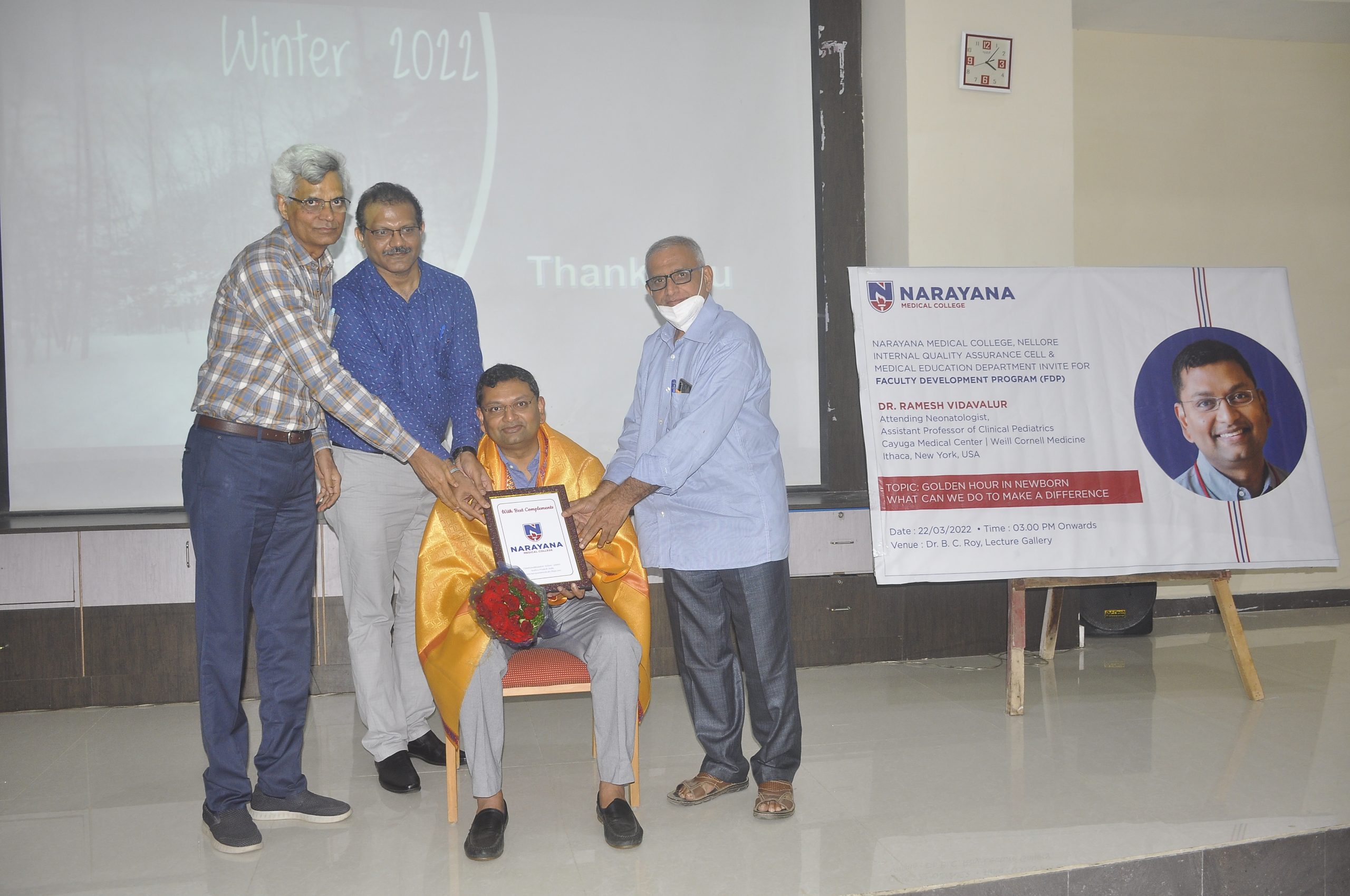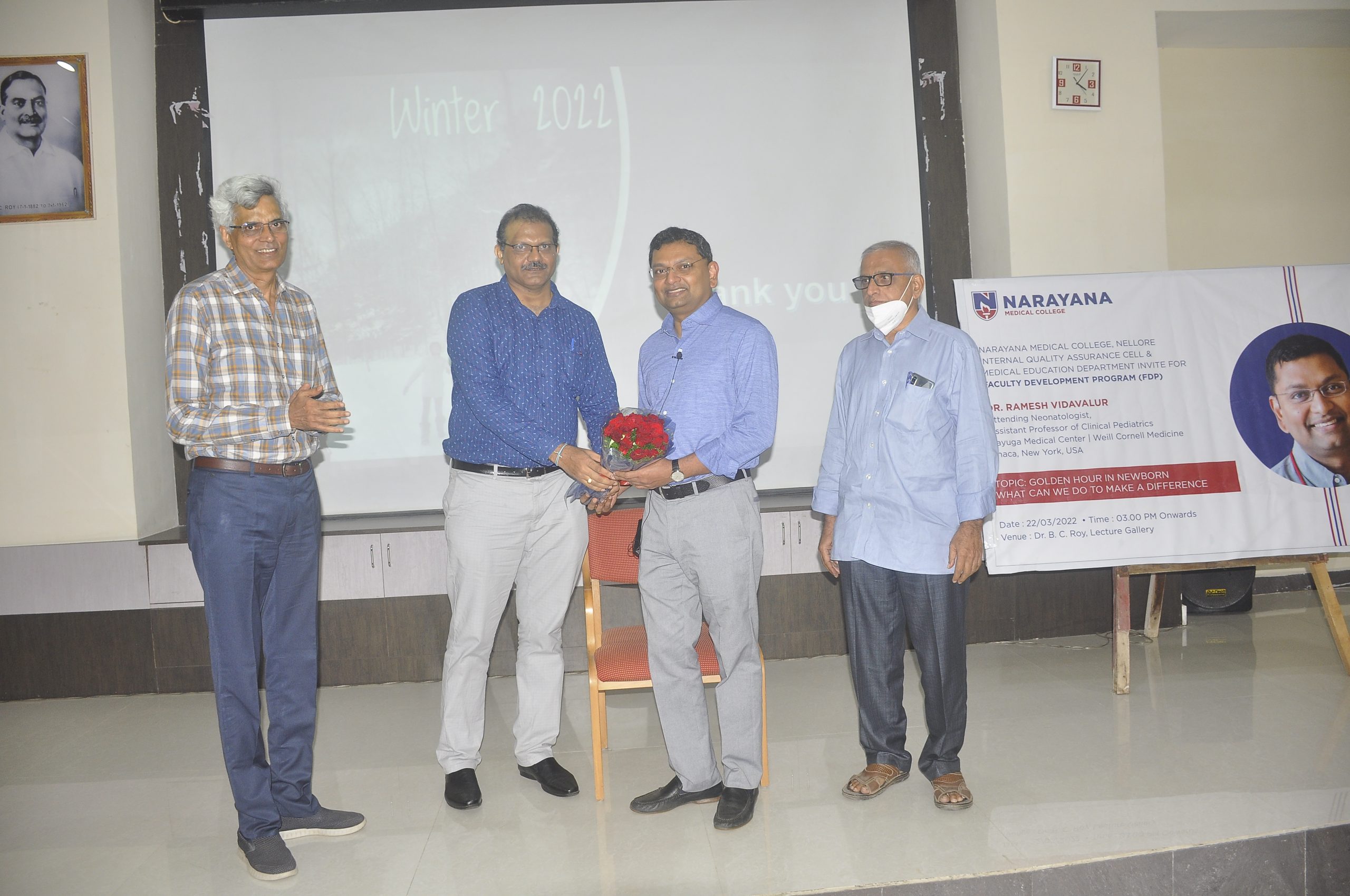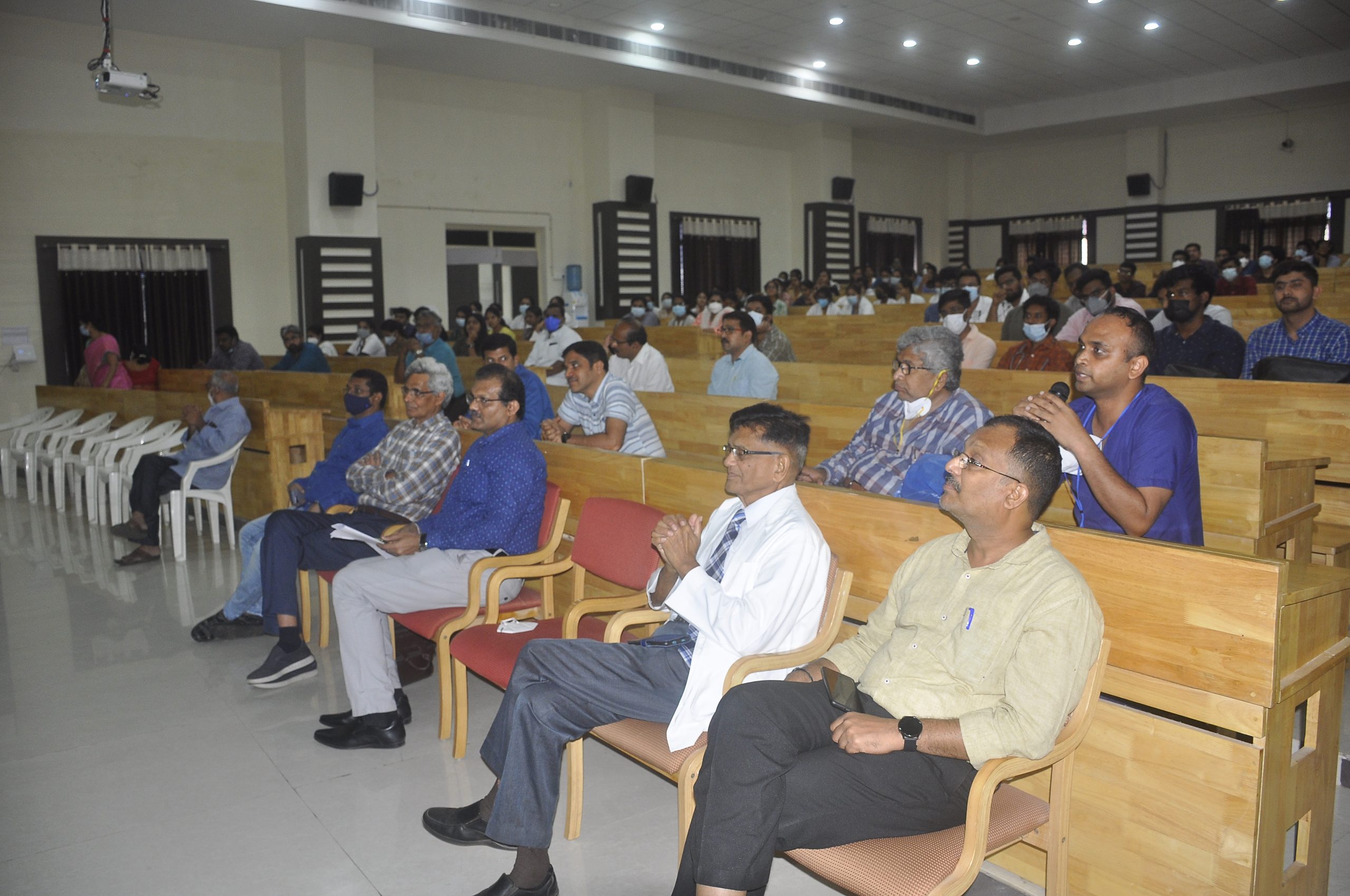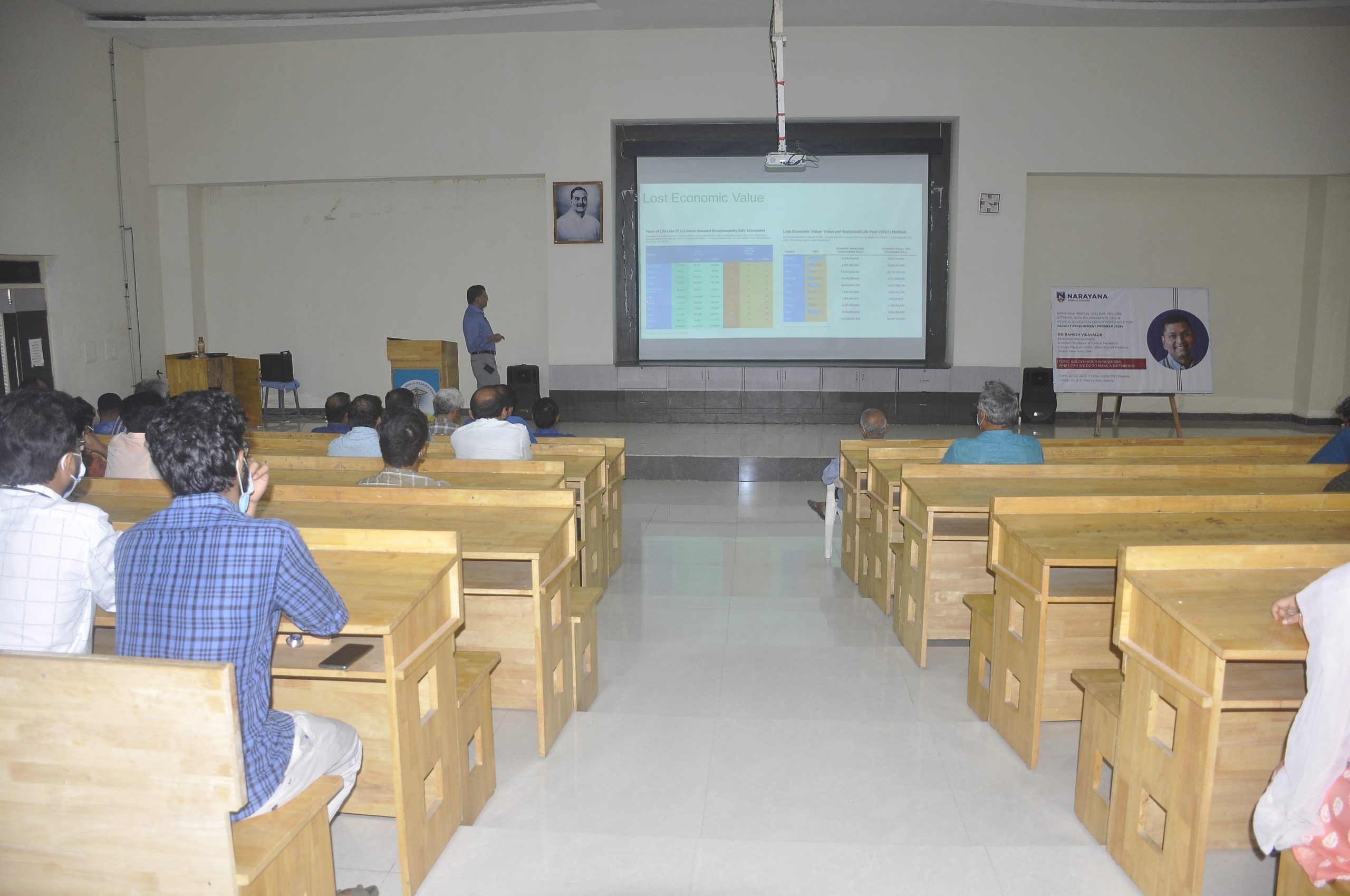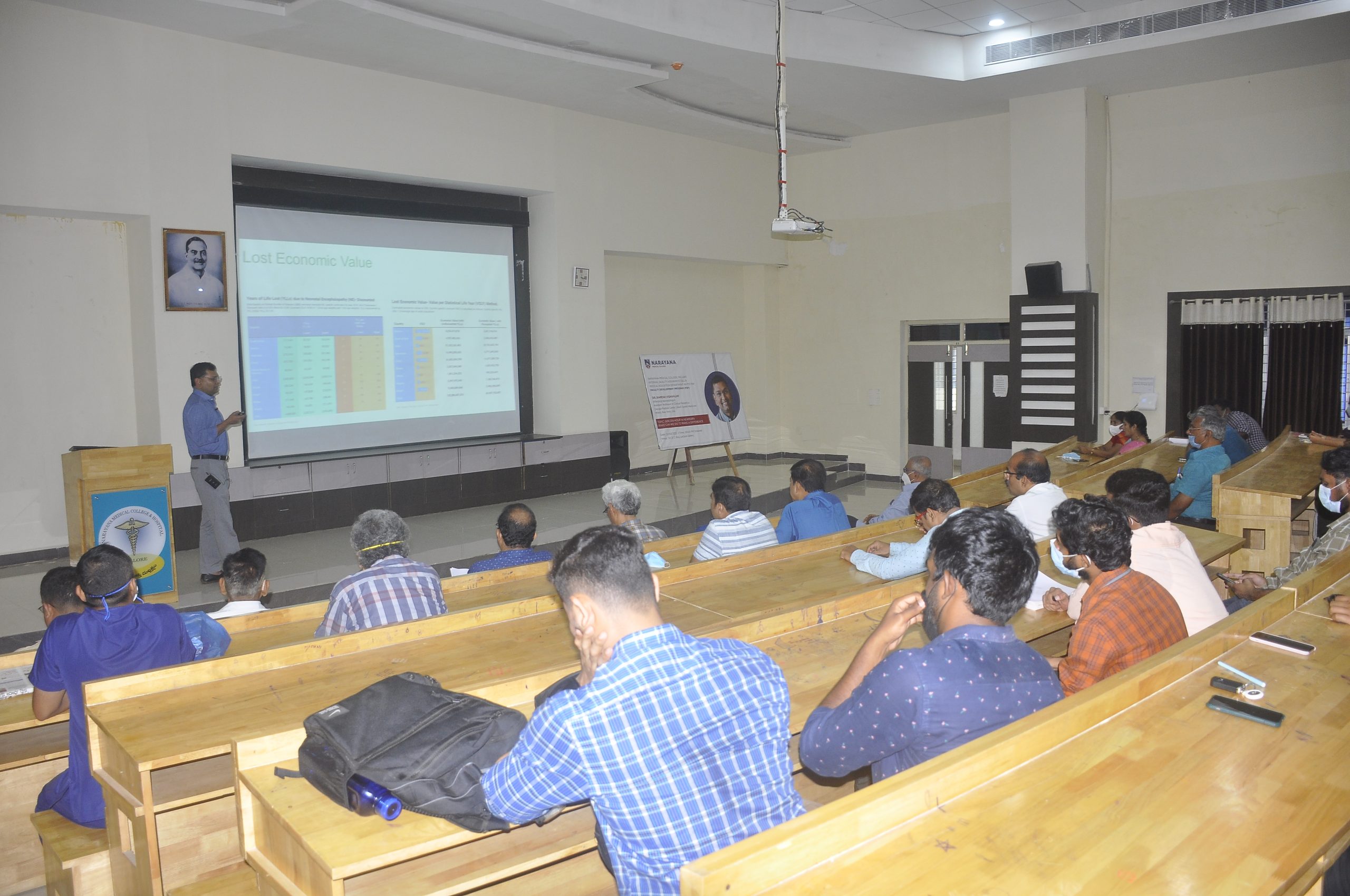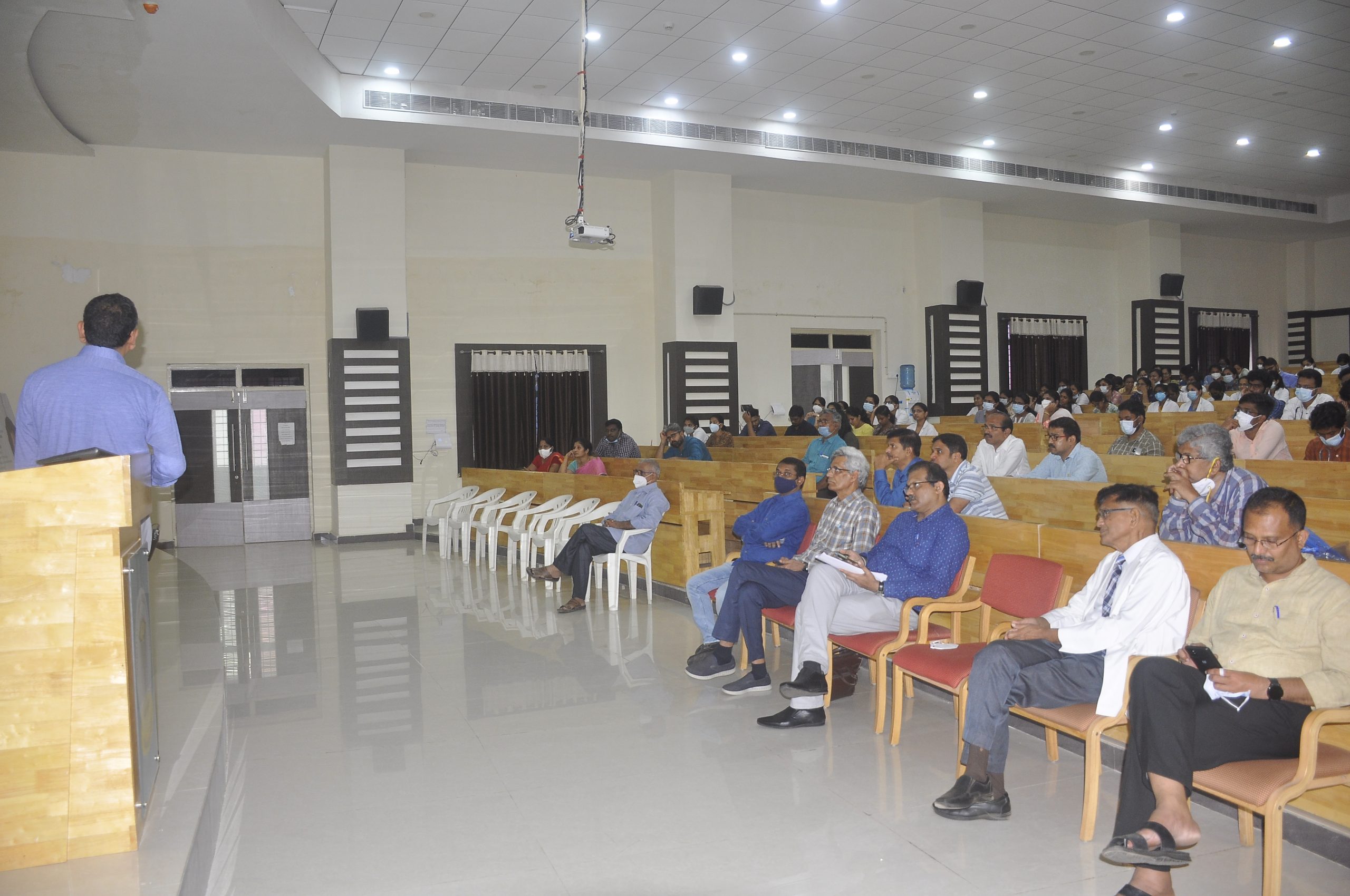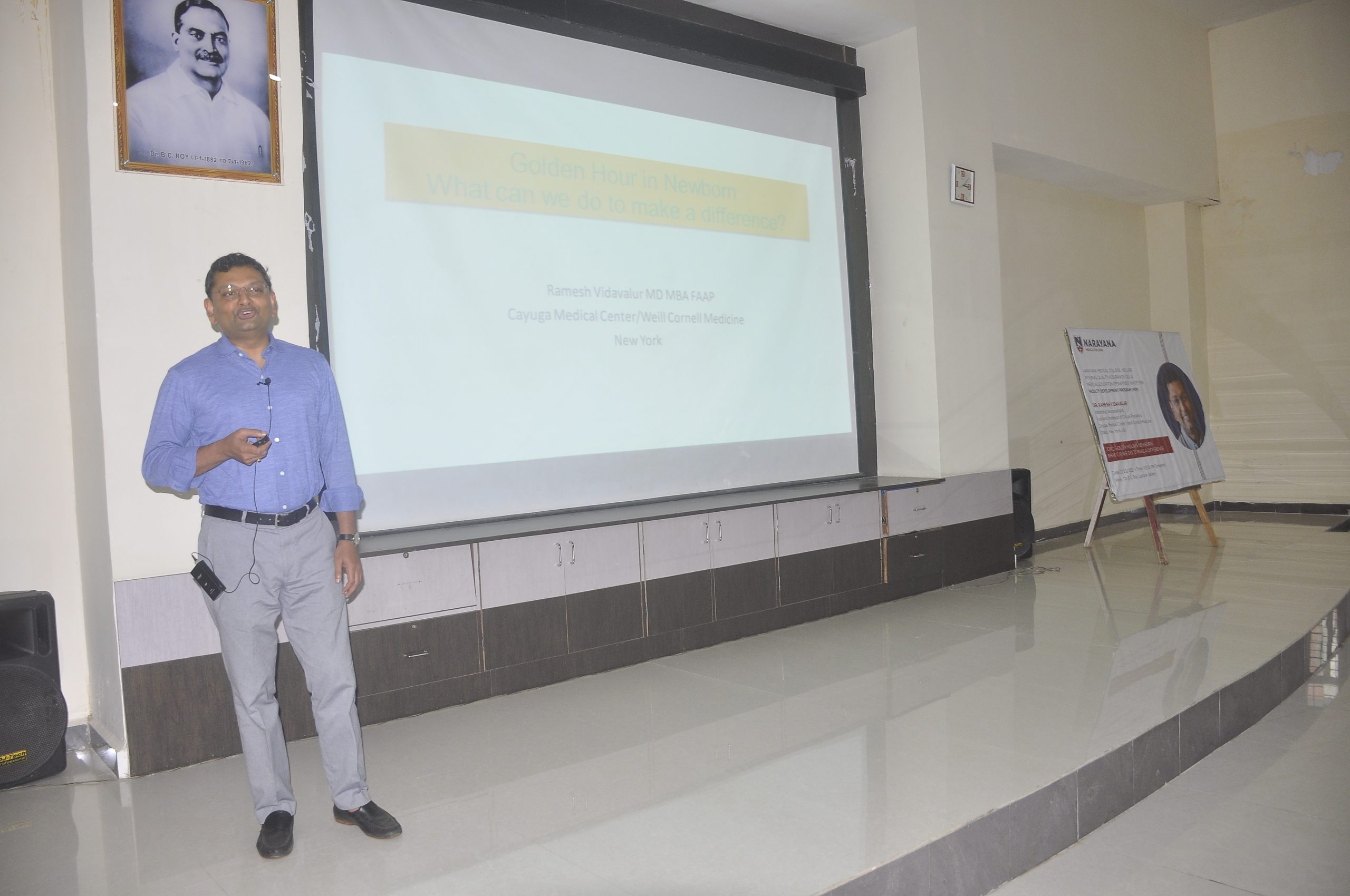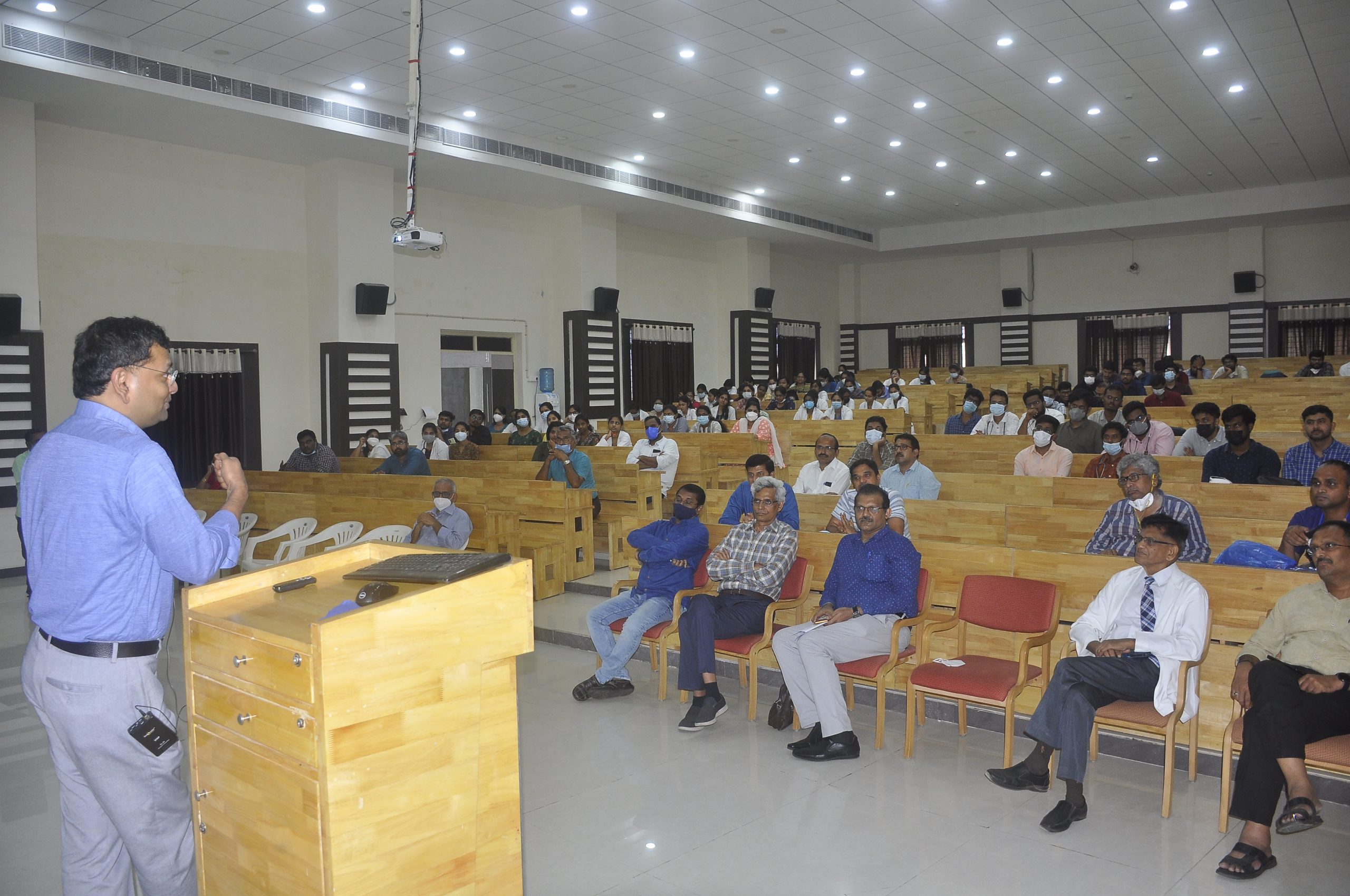DIVISION OF NEONATOLOGY DEPARTMENT OF PAEDIATRICS
GUEST LECTURE ON TOPIC: “GOLDEN HOUR IN NEWBORN”- “WHAT CAN WE DO TO MAKE A DIFFERENCE”.
DATE: 22/03/2022.
VENUE: Dr.B.C.ROY LECTURE GALLERY.
SPEAKER: DR. RAMESH VIDAVALUR.
Antenatal counselling is an essential part of antenatal care in order to make the parents aware of possible perinatal problems and outcomes of the newborns. It generally includes a pre-conceptional risk assessment of any potential high risk pregnancy complications that may compromise the fetal well being, discussing the same with parents as well as putting forward the ways which help in the modifications of these risk factors for better fetal outcome. This not only ensures preparedness in the parents but also helps in developing a good patient- doctor relationship, which is why antenatal counselling is also made an important component in Neonatal Resucitation Programme.
Ninety percent of newborn babies make transition from aquatic to dry environment without difficulty. But 10% of neonates require some assistance to begin breathing at birth, of which 1% may need extensive resuscitation to survive. Neonatal resuscitation is a series of emergency procedures performed by a doctor to support newborn babies who are not breathing/ gasping and have a low heart rate at birth.
These skills allow a doctor to save the lives of newborn babies. A good resuscitation by a trained doctor/nurse not only prevent neonatal death but also helps to avoid adverse long-term neuro-developmental sequelae associated with perinatal problems arising during birth.
Antenatal steroids are widely accepted to be the most effective therapy to reduce neonatal morbidity and mortality in preterm infants born between 24 and 34 weeks of gestation. Studies have proven that antenatal steroids reduce the incidence of neonatal death, the incidence and severity of Respiratory distress syndrome, Necrotizing enterocolitis, Intraventricular haemorrhage etc. Antenatal steroids play a major role in lung maturity in preterm neonates. They must be administered to all pregnant mothers who are expected to delivery within a week.
Therapeutic hypothermia has been shown to decrease the risk of brain injury in newborns exposed to perinatal hypoxic ischemic insults. Hence therapeutic hypothermia should be practiced as standard of care in all HIE(stage-i & ii) neonates with gestational age >35 weeks and birth weight of > 2 kg who present to the treatment centre within the window period of 6 hours. The target core temperature goal during cooling is 33.50c (330 to 340c) with acceptable range of 32.50 c to 34.5o c, but too much of fluctuations in temperature is much deleterious to the infant per se. These neonates who were managed with whole body cooling should be followed up to 18 months of age to assess the subsequent development.
COURSES OFFERED
Copyright © . Narayana Medical College & Hospital. All rights reserved.

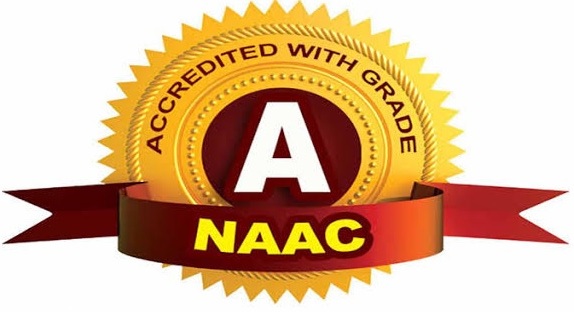
 CINEC
CINEC